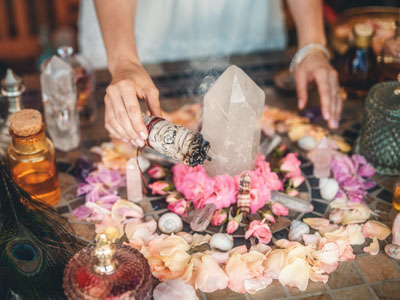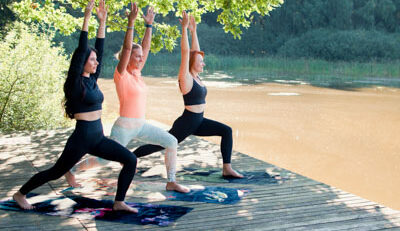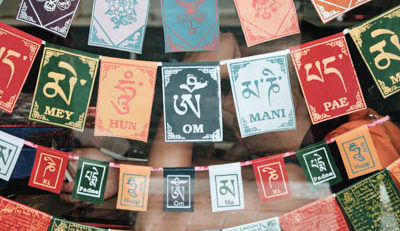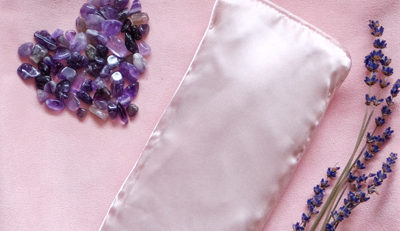Rituals definition and why are they important
When we say ‘ritual’, we all imagine something different. For some it is priests covered in robes, for others it’s a morning cup of coffee. Some perceive rituals as religious, spiritual or social ceremonies, others as everyday habits. Both are true. Rituals are modern and ancient, simple and complex, momentous and everyday.
What are rituals?
A ritual, or rite or ceremony, is a sequence of predefined activities, steps, words or gestures. Ritual can be one-off or repeated until it becomes a habit and it has meaning and a high symbolic content for us. Rituals are often based on traditions, proven rules and norms.
Spiritual rituals include New Moon rituals, a religious ritual can be baptism, and also giving kids a bath or reading them bedtime stories is a ritual. Athletes have rituals before competitions, actors before going on stage, hunters before hunting, and even wedding is a ritual.
Why are rituals important
When performing a ritual, a bridge opens between the physical world and the deeper, spiritual layers that lie beneath our consciousness. We activate internal powers and resources that are not normally accessible to us. Rituals connect our actions with a higher meaning and thus help us overcome important life situations and prepare for changes, a new phase or life role.
According to psychologists, rituals help us to overcome anxiety, reduce stress levels and boost confidence in ourselves and what we do in almost every situation. They provide a sense of control, removing tension and strengthening belief in a positive outcome. In other words, they are an important step on a journey to manifest our intent.
But the benefits of rituals transcend individuals and extend to groups. Ceremonial and ritualistic behaviour strengthens social bonds, which especially in ancient cultures was the key to well-being and even survival. It solidifies common ground and fosters a sense of belonging.
How to do rituals
Rituals have their own prescribed rules and procedures, so each ritual is different. Despite the variety of rituals, a few principles should be observed to ensure the best possible experience and outcome. In general, the more we open up and enjoy the ritual, the more energy we gain and the more effective the ritual is.
Key ritual principles:
-
Think it through beforehand
You want your ritual to go smoothly, without a hitch, unnecessary stress and anxiety. Whilst it is important to follow the correct ritual steps, it is equally important to relax, be open and leave space for spontaneity. When we we are too distracted by the physical steps and worrying about what’s next and if we missed something, it is difficult to connect with our inner self, the ritual itself and the spiritual realm.
-
Be in the present moment
The human mind has a tendency to jump from one thing to another. When we do something, we think about children, work, partner. Be here and now. Results will show where you direct your energy. Concentrating on a given moment allows you to connect with your inner self and thus activate deeper powers.
-
Set a clear intent
Where do you want to direct the power of the ritual and the energy? What do you want to achieve? Without a clear intent, attention gets fragmented and the effectiveness of the ritual compromised. In Feng Shuai, energy follows intent. When cleansing your home, the intent can be to fill your home with new, positive energy that nurtures loving relationships, creativity and abundance. Avoid complex big words – the intent must be simple and from the heart.
-
Prepare your space
Preparing the space can be part of the ritual. With the intent in mind, cleanse the space first physically and then with smudging or sounds. Prepare ritual tools, crystals, symbolic objects, candles, flowers and everything you will need. You can build an altar where all the tools will be available. For group rituals, prepare a place for all participants.
-
Use your voice
Despite the set steps, do not to lose yourself in the ritual. Use your own voice to formulate the intent, summon the archetypes whose blessings you ask using your own words. Preparation for the ritual should leave room for intuition, inspiration and spontaneity during the actual ritual.
-
Use your imagination
Have you ever heard that if you can imagine it, you can have it? The ritual is more effective when you engage your imagination. Imagine yourself in a certain role – it can be a goddess, priestess, or a mage. Visualize that you have already achieved your intent, see what it looks like and observe how it feels. You may smell smells, or hear music, laughter, or other sounds. The more senses and imagination you involve in the ritual, the more effective it is.
-
Thank all participating and archetypes
At the end of the ritual, thank all the participants and the archetypes you called on for help. These can be ancestors, guardian angels, Mother Goddess, God, and other entities. Do it from your heart and with gratitude. Strong emotions, intuition and sincerity coming from within are more powerful than carefully planned mechanically executed steps.







Leave a Reply